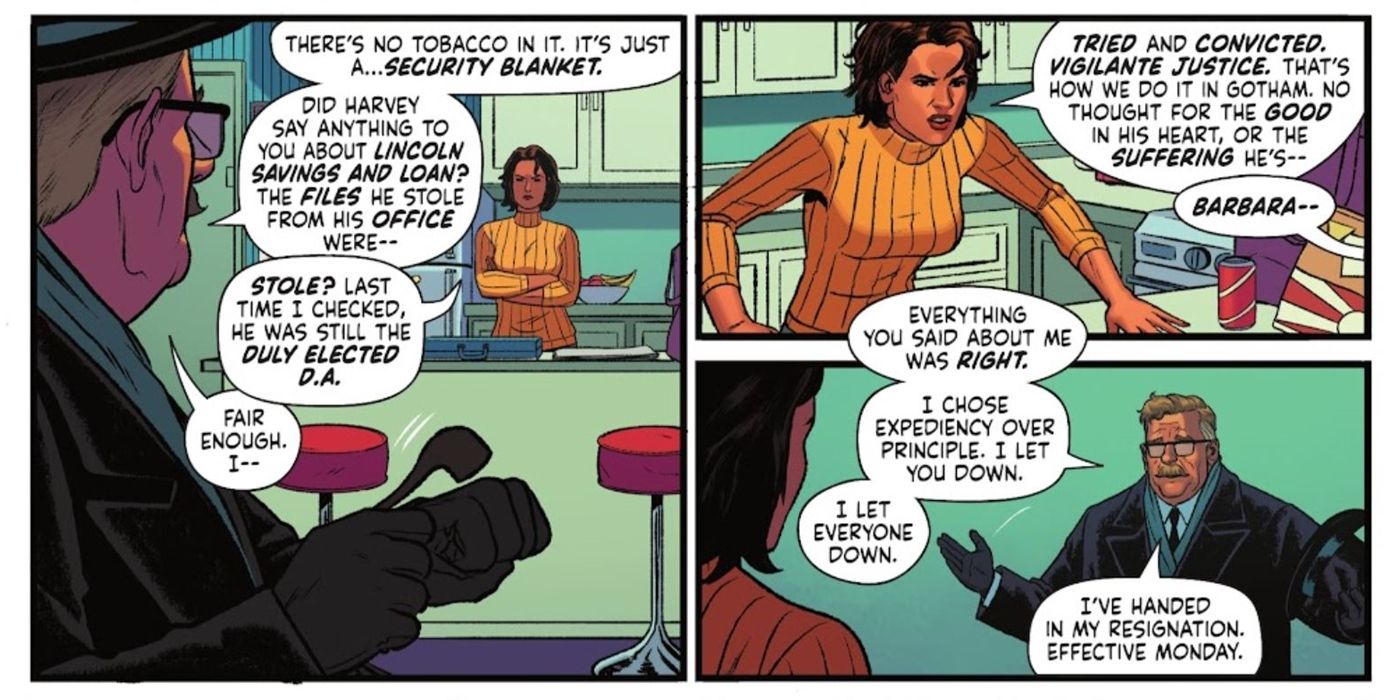The following contains spoilers for Batman '89 #5, now on sale from DC Comics.
The typical versions of Batman's most consistent allies tend to not change much across adaptations. Characters like James Gordon, Alfred Pennyworth, and Dick Grayson fill consistent roles across mediums and universes although there are a few notable exceptions, such as evil versions of Grayson or dangerous takes on Alfred.
It's rare that a version of Gordon has been as beaten down as the one seen in Batman '89, and issue #5 (by Sam Hamm, Joe Quinones, Leonardo Ito, and Clayton Cowles) features one of the most bitter portrayals of the Gotham City Commissioner yet.

In the world of Batman '89, the Dark Knight found an ally in James Gordon. As in many realities, Gordon was one of Batman's only vocal supporters among the leaders of Gotham City, and in Batman Returns he was one of the only people keeping the GCPD from fully turning against the Caped Crusader. However, in the Batman '89 mini-series, Gordon's loyalty to the Gotham City vigilante has cost him.the respect of the city and his fellow officers, his leadership within the GCPD, and the admiration of his daughter Barbara.
In a conversation with Barbara during the opening pages of Batman '89 #5, Gordon admits that everything he did (including supporting Batman) came at too great of a cost, and his intentions to fight decisively against crime has just alienated everyone he cared about. In response, he's agreed to step away from the GCPD once and for all. But before he and Barbara can reach a peaceful agreement, Harvey Dent, aka Two-Face, attacks the police department and captures Gordon. Initially, Dent's intention is to keep Gordon around as a valuable hostage, but after an intense argument with his former friend, the villain shoots him. As Gordon collapses, he notes that his possibly fatal injury is probably for the best, as this will likely be a breaking point for Barbara and fully turn her against Dent.

This is a surprisingly bitter take on Gordon, who is usually one of Batman's more optimistic allies. While the lawman has plenty of experience dealing with the dark corners of Gotham, his faith in the system has typically been a defining aspect of the character. Even in his appearances in The Joker (which have seen him ruminate on the nature of evil and openly consider killing the Joker) Gordon has been consistent in his tenacity and commitment to justice. This version seems to have accepted his mistakes and elected to more or less give up on his mission.
This is certainly a dark take on an otherwise shining star, to the point where Gordon's efforts to get Dent to shoot him almost seem like a relief. It's a far cry from most portrayals of the character, who often remains one of the most steadfast moral guidelines in the DC Universe. But it seems that in this timeline, Gordon's resolve is spent, and even his most significant act is done more out of a sense of spite than actual heroism.


